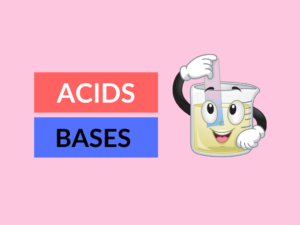Difference Between Alkali and Alkaline
What is Alkali?
Alkali refers to a class of chemical compounds that are soluble in water and can neutralize acids, producing salts and water as byproducts. These compounds typically belong to the group of hydroxides of metals.
Examples of Alkali:
- Sodium hydroxide (NaOH)
- Potassium hydroxide (KOH)
- Calcium hydroxide (Ca(OH)2)
- Ammonium hydroxide (NH4OH)
Uses of Alkali:
- Sodium hydroxide is commonly used in soap-making and drain cleaners.
- Potassium hydroxide finds applications in the production of fertilizers and soaps.
- Calcium hydroxide is used in the construction industry for mortar and plaster.
- Ammonium hydroxide is used as a cleaning agent and in some household products.
What is Alkaline?
Alkaline is a term used to describe substances that have basic properties or a pH level greater than 7 when dissolved in water. These substances are usually compounds that can accept protons or donate electron pairs.
Examples of Alkaline:
- Baking soda (sodium bicarbonate – NaHCO3)
- Ammonium carbonate ((NH4)2CO3)
- Magnesium hydroxide (Mg(OH)2)
- Calcium carbonate (CaCO3)
Uses of Alkaline:
- Baking soda is commonly used in cooking, cleaning, and as an antacid for indigestion.
- Ammonium carbonate is used in food production and as an ingredient in smelling salts.
- Magnesium hydroxide is used as an antacid and as a laxative.
- Calcium carbonate is used in the production of chalk, toothpaste, and dietary supplements.
Differences Between Alkali and Alkaline
| Difference Area | Alkali | Alkaline |
|---|---|---|
| Solubility in Water | Alkali compounds are soluble in water | Alkaline substances are soluble in water |
| Composition | Alkali compounds are hydroxides of metals | Alkaline compounds can be various substances, including hydroxides and carbonates |
| pH Level | Alkali compounds have a pH level greater than 7 | Alkaline substances also have a pH level greater than 7 |
| Neutralization Abilities | Alkali compounds can neutralize acids by producing salts and water | Alkaline substances can also neutralize acids and form salts |
| Common Examples | Sodium hydroxide, potassium hydroxide | Baking soda, magnesium hydroxide |
| Uses | Soap-making, drain cleaners | Cooking, cleaning, antacid |
| Chemical Formula Control | Alkali compounds have a fixed chemical formula | Alkaline substances can have multiple chemically distinct formulas |
| Prevalence | Alkali compounds are commonly found in laboratories | Alkaline substances are found in various products and natural environments |
| Production of Salts | Alkali compounds produce water and salts when reacting with acids | Alkaline substances also produce salts but might release carbon dioxide if carbonates are involved |
| Industrial Applications | Alkali compounds are used in various industrial processes such as paper manufacturing | Alkaline substances find applications in industries like agriculture, medicine, and water treatment |
Conclusion:
In summary, alkali and alkaline are terms used to describe different types of chemical compounds. Alkali specifically refers to a class of soluble hydroxides of metals that can neutralize acids, while alkaline describes substances with basic properties and a pH level greater than 7. While both can perform similar functions, such as neutralizing acids and producing salts, their compositions, examples, and applications differ. Understanding the differences between alkali and alkaline helps in various scientific, industrial, and everyday life contexts.
People Also Ask:
Q: What is the difference between alkali and alkaline?
A: The key difference is that alkali refers to hydroxides of metals, whereas alkaline describes substances with basic properties and a pH greater than 7.
Q: What are some examples of alkali compounds?
A: Sodium hydroxide (NaOH), potassium hydroxide (KOH), and calcium hydroxide (Ca(OH)2) are common examples of alkali compounds.
Q: Can alkali and alkaline substances dissolve in water?
A: Yes, both alkali and alkaline substances are soluble in water.
Q: What are the uses of alkaline substances?
A: Alkaline substances find various applications such as cooking, cleaning, antacids, and industrial uses like water treatment.
Q: Are alkali and alkaline substances harmful?
A: Some alkali and alkaline substances can be corrosive and pose health risks, so proper precautions should be taken during handling and use.


